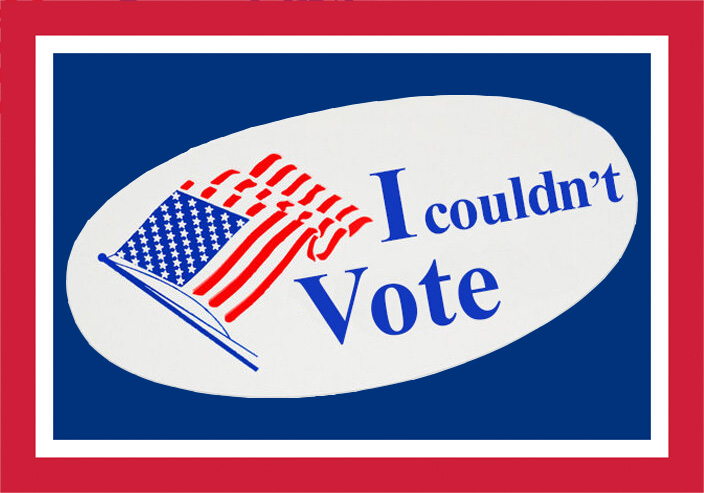For the fifth year straight, lawmakers are advancing bills through the Wyoming Legislature hoping to limit who can vote in primary elections.
Bills to ban “crossover voting” have been proposed and defeated each year since 2019. But they are perennially among the highest priorities of the Wyoming State Republican Party, so they keep coming back—and in some cases, they come back from the dead.
This year, the chairman of the Legislature’s so-called “Freedom Caucus,” Rep. John Bear (R-Gillette), said ending crossover voting is his top priority, as well.
“Crossover voting” is the practice of switching political parties in order to vote for a certain candidate or in a certain primary election.
Tens of thousands of Wyoming voters maintain “independent” or “unaffiliated” status, but they register with a political party when they cast a primary ballot in order to support the individual they view as the best candidate.
“What they’re doing is essentially choosing the most moderate of the Republicans.”
The Wyoming GOP and Freedom Caucus both claim that a plague of Democrats switching to vote in Republican primaries is the motivation for their desire to block crossover voting.
Indeed, many Wyoming local and statewide races lack credible Democratic candidates, so the “real” elections take place in the GOP primaries—not the general election. As a result, Democrats wanting a voice in who represents them also switch their registration at the polls.
Hot Springs County Republican Party Committeewoman Cheryl Aguiar told the House Corporations Committee last week that this practice interferes with her goal of moving the state and her party further to the radical right fringe.
“When Democrats cross over to vote in my primary, what they’re doing is essentially choosing the most moderate of the Republicans,” Aguiar said.
Permanent Republicans
The House Corporations Committee was considering “House Bill 103 – Political affiliation declaration and changes,” sponsored by Rep. Jeremy Haroldson (R-Wheatland).
HB-103 would prohibit Wyoming voters from switching parties after the date when candidates could first file to run for office. In effect, a voter would only be able to change parties before they knew who they might be voting for.

Gail Symons, who writes the politics blog Civics307, explained to the committee that stopping people from being able to switch parties to vote—and then switch back—will simply result in Democrats and independents registering with the Republican Party permanently.
“Be careful what you ask for,” Symons said. “You shut down party affiliation changes in the cycle, and I guarantee you that you will just kill what’s left of the Democratic Party. Everybody who cares about who gets elected to any office is going to change to Republican and stay there.”
The House committee ignored Symons’ warning and advanced HB-103 to the full House, which in turn sent the bill to the Senate.
It will soon be heard by the Senate Corporations Committee, which last week—in contrast to its House counterpart—voted down another “crossover voting” ban proposal, “Senate File 163 – Election Integrity Primary Elections,” sponsored by Sen. Bo Biteman (R-Ranchester).
The shady committee shuffle
It makes sense that the Corporations Committee in each chamber would hear both Rep. Haroldson’s and Sen. Biteman’s “crossover voting” bans. It is, after all, the committee that handles election-related bills—its full name is the Corporations, Elections & Political Subdivisions Committee.
However, given the fate of the first “crossover voting” bill that landed in the Senate Corporations Committee last week, it seems likely that lawmakers dead set on restricting primary elections will attempt to have Rep. Haroldson’s crossover voting ban “re-referred” to another committee.
That is exactly what happened last year: A bill to ban crossover voting had been referred to the Senate Corporations Committee, where it faced likely defeat. So, before the Corporations Committee could hear it, the Senate chamber voted to “re-refer” the election-related bill to the Senate Agriculture Committee.
Once the bill had moooooved over to Senate Ag, it had an easy path through lush green pastures until the House Appropriations Committee killed it upon hearing hours of testimony against it.
Gray: Stay dumb, vote loyal
One newly prominent advocate of banning “crossover voting” is Wyoming Secretary of State Chuck Gray.
Gray, who served in the Wyoming House of Representatives for six years prior to winning statewide office, campaigned in 2022 on the idea that Wyoming’s elections aren’t safe and lack “integrity.”

Ironically, shortly after Gray’s victory, GOP officials including Marti Halverson stated that, in fact, the 2022 elections went smoothly and with no funny business.
Gray appears to have little appetite for actually doing his new job, since he can be found daily among his old friends at the Legislature lobbying for or against election-related bills.
Last week, Gray told the House Corporations Committee that blocking people from switching parties after they are able to see who the candidates are ensures that people remain loyal to their own political party.
“I prefer the start of the filing period as the deadline to switch,” Gray said, “because I think your party affiliation membership really transcends who the candidates are.”
Marguerite Herman of the Wyoming League of Women Voters told the committee that Gray’s line of thought encouraged loyal—but dumb—voting.
She said banning people from switching parties is “kind of a test of party fealty” that makes gathering information about candidates pointless, effectively saying, “Go ahead and be uninformed and vote.”
A ballot initiative threat?
During her testimony to the House Corporations Committee, Aguiar, the Hot Springs County GOP Committeewoman, warned lawmakers that if the Legislature fails to ban crossover voting this year, the people would do it via ballot initiative.
“We’re done with this,” she said defiantly. “If you don’t pass it, we will.”
“This one has no chance.”
Rep. Haroldson, the ban’s sponsor, told the committee the group gathering signatures to get on the ballot is serious.
“The Legislature can’t silence the initiative,” he said.
Rep. Dan Zwonitzer (R-Cheyenne), past chairman of the House Corporations Committee, didn’t appreciate the group trying to “intimidate” lawmakers.
He noted on the House floor that no ballot initiative has succeeded in two decades, and predicted “this one has no chance.”
Then, he cast one of the few votes against it.

